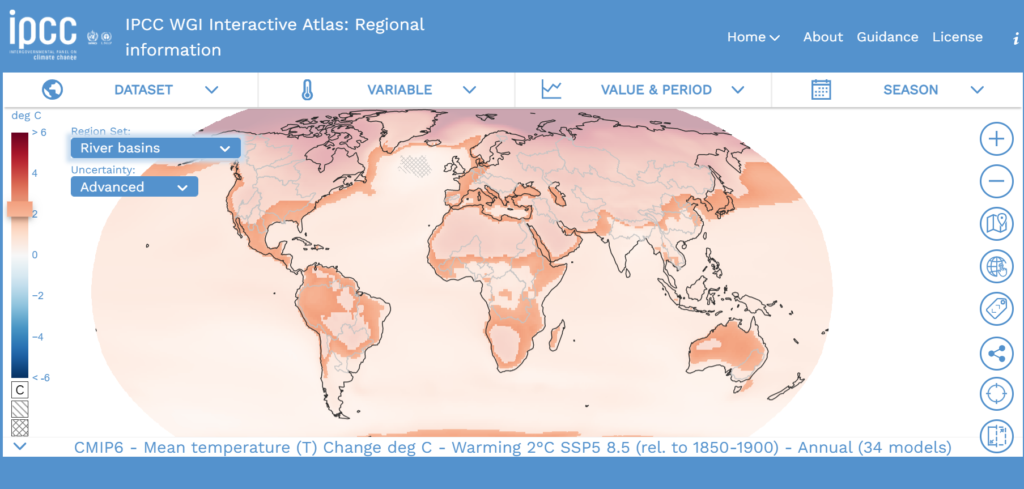IPCC presents interactive atlas to analyse regional effects

-
 Nancy Smith
Nancy Smith
Share article:
A new tool accompanies the release of the landmark sixth Intergovernmental Panel on Climate Change (IPCC) for flexible spatial and temporal analyses of much of the observed and projected climate change information including instruments for predicting regional effects of global warming. For example, how much will the sea rise in the Mediterranean when the temperature goes up to 4 degrees Celsius?
European policy makers and water professionals that have been unpacking the findings of the recent IPCC 6th assessment report, which came out of Working Group 1: Physical Science Basis, can now get closer to the data than ever before. The Interactive Atlas allows for a close-up analysis of the climate change data and indices through a number of different spatial and temporal filters. For example precipitation in North-West Europe in the near term (2021-2040) under a 1.5 degree temperature change scenario.

Tools for policy makers
The regional information supports the technical summary and the summary for policymakers, allowing for flexible temporal and spatial analyses of trends and changes in key atmospheric and oceanic variables, extreme indices and climatic impact-drivers, as obtained from several global and regional observational and model simulated datasets used in the report.
Understanding the future
Being able to interpret the findings of the IPCC assessment is fundamental to understanding the future weather scenarios Europe could be facing. Matthew Blackett, Climate Change specialist at Coventry University, UK, says: “With Europe’s wide geography and climate, the future is likely to be varied with Northern Europe seeing increased temperatures and increased extreme ‘one off’ rain events with less predictability. Eastern and Southern Europe, meanwhile, could become dried for longer but, similarly, any rain events could become more intense and erratic.” Overall, the 6th Assessment Report states that continued global warming is projected to further intensify the global water cycle, including its variability, global monsoon precipitation and the severity of wet and dry events.
Adaptation and policy
The overall conclusion of the IPCC 6th Assessment is that globally we cannot not reverse the damage already done. Blackett comments that the countries of Europe have opportunities to work together to mitigate future effects. “Leading by example on sustainable green energy policies could be a way forward. This could include the European Commission financial incentives for renewable energy development to drive down costs; reducing costs of greener transport options such as train travel; additional funding for research and development of emerging technologies such as hydrogen production; and economic aid focused on establishing renewable energy production to enhance growth and development.”
Drought and floods
Europe has been dealing with some catastrophic weather events this summer with server flooding in Germany, Belgium, The Netherlands and Turkey, record temperatures in Spain, and wildfires in Greece. Over the last few years drought and floods occurred more frequently in Europe.
Irreversible effects
The overall findings of the IPCC 6th assessment is that human induced climate change is undeniable and it is already affecting many weather and climate extremes in every region of the globe – with Europe being no exception. Global warming is projected to further intensify the global water cycle, including its variability, global monsoon precipitation and the severity of wet and dry events. It also states that many changes due to past and future greenhouse gas emissions are irreversible for centuries to millennia, especially changes in the ocean, ice sheets and global sea level.














